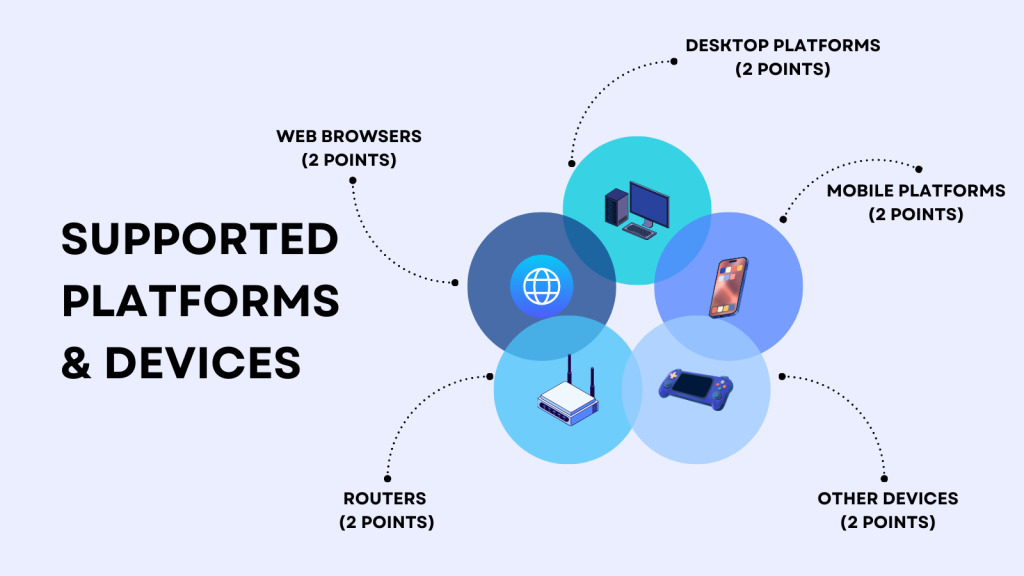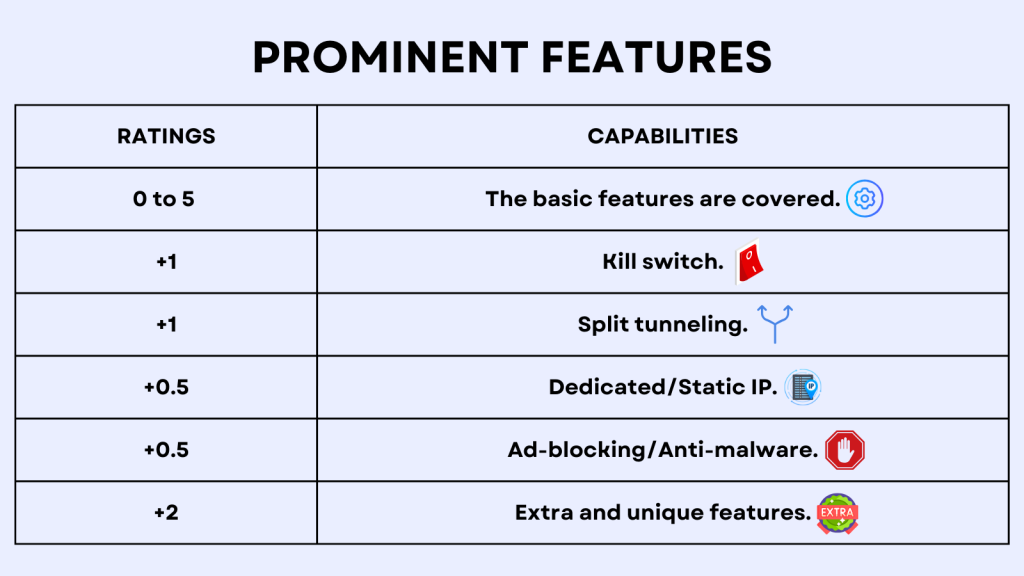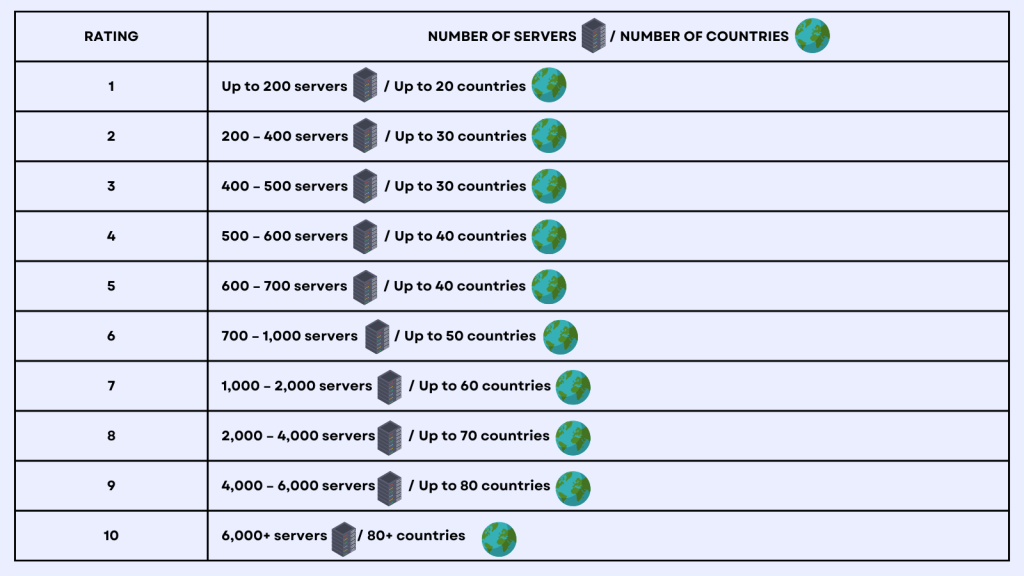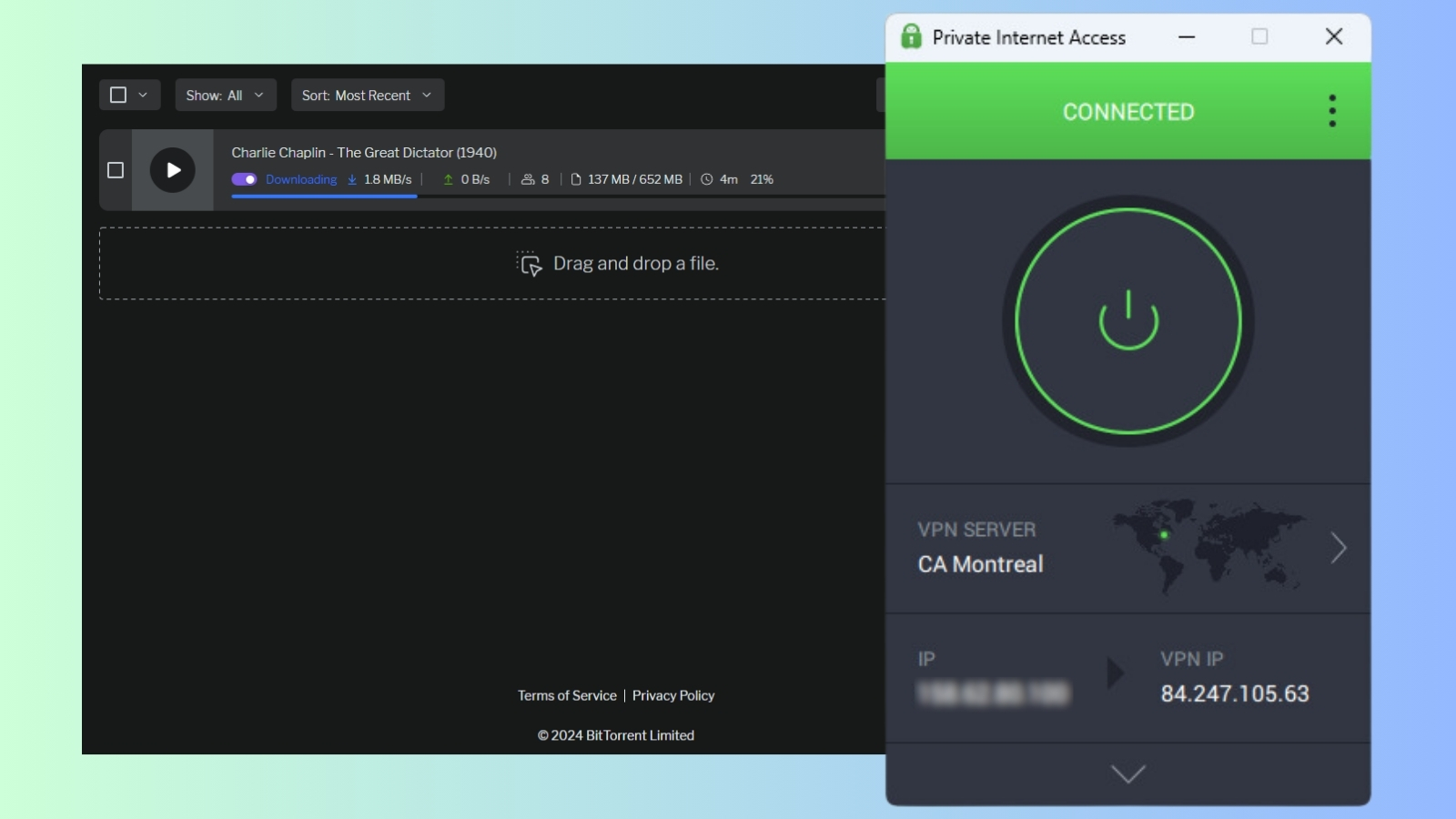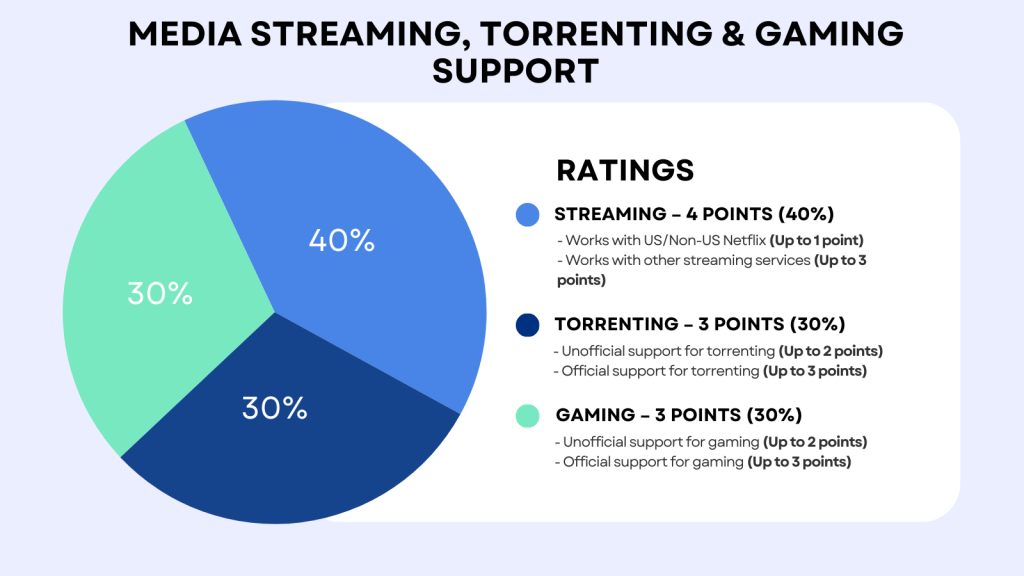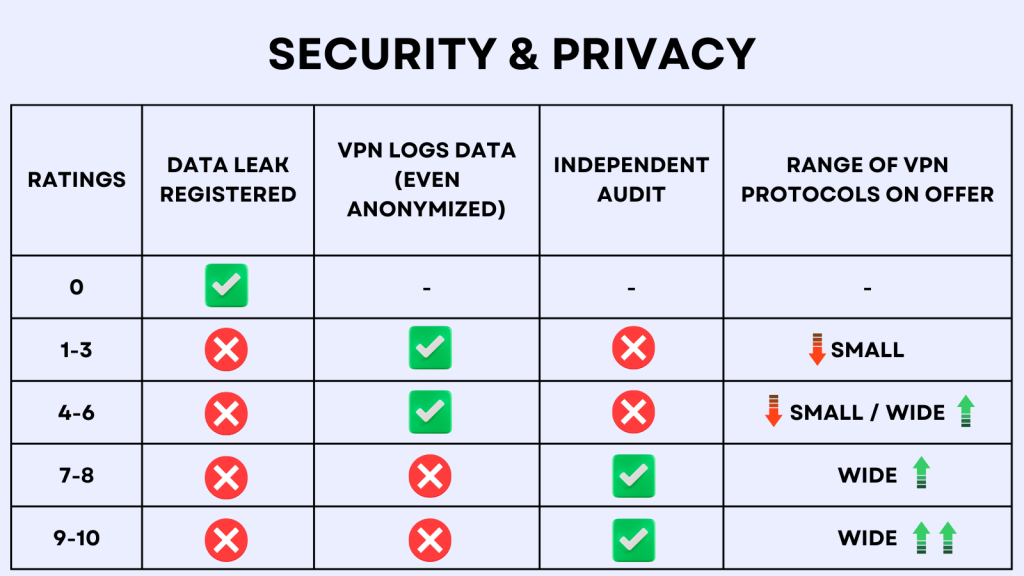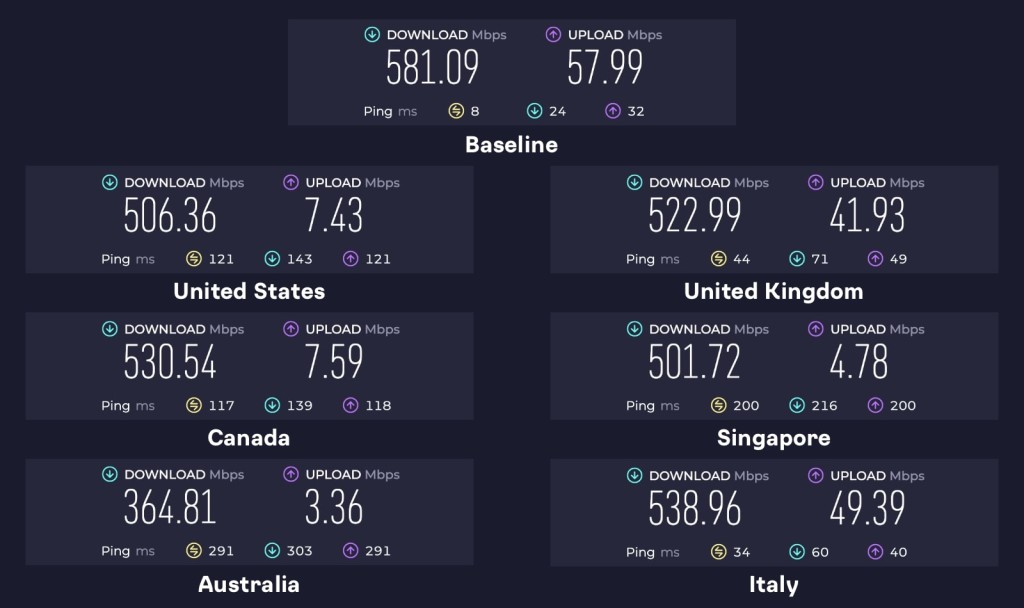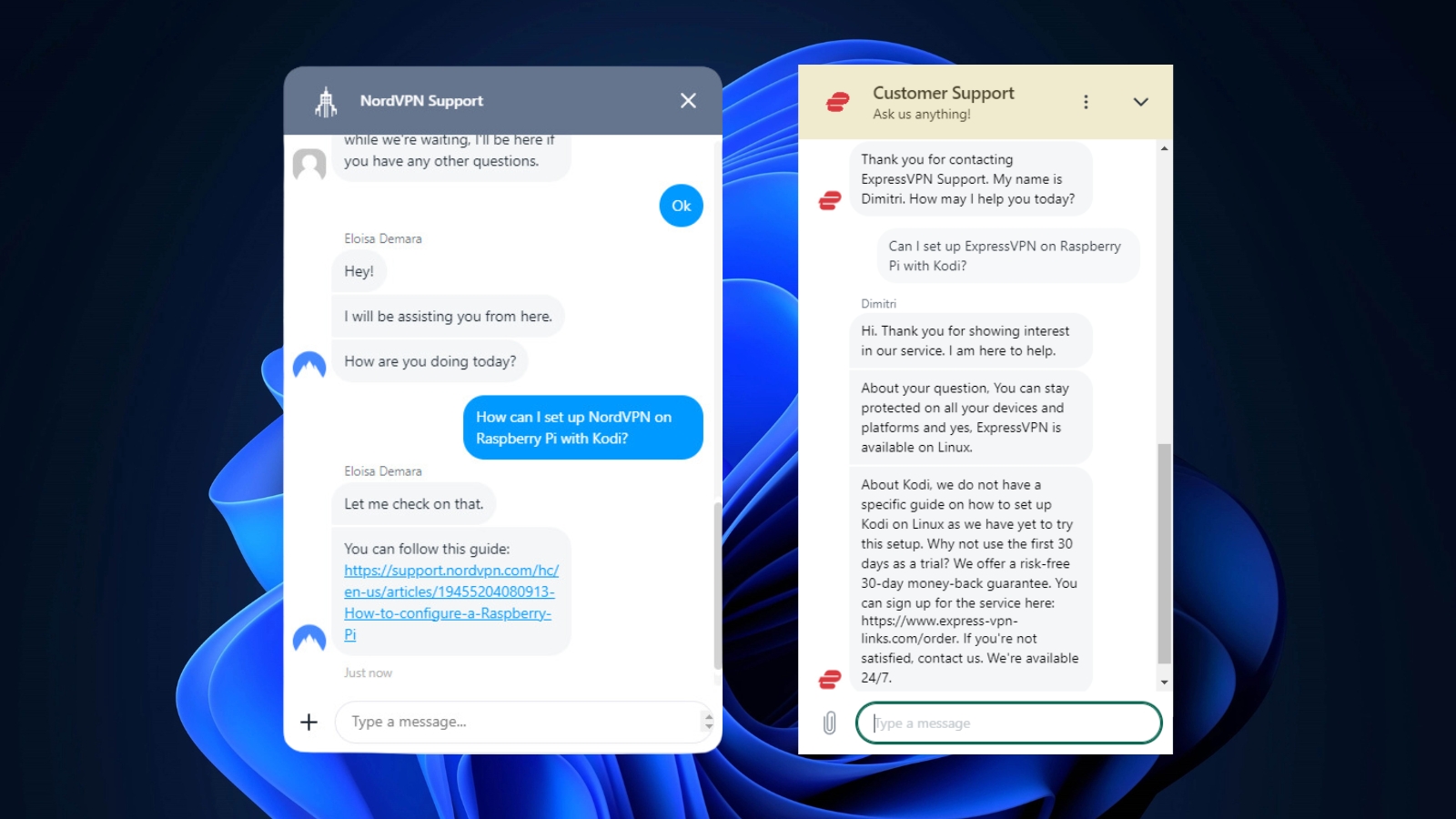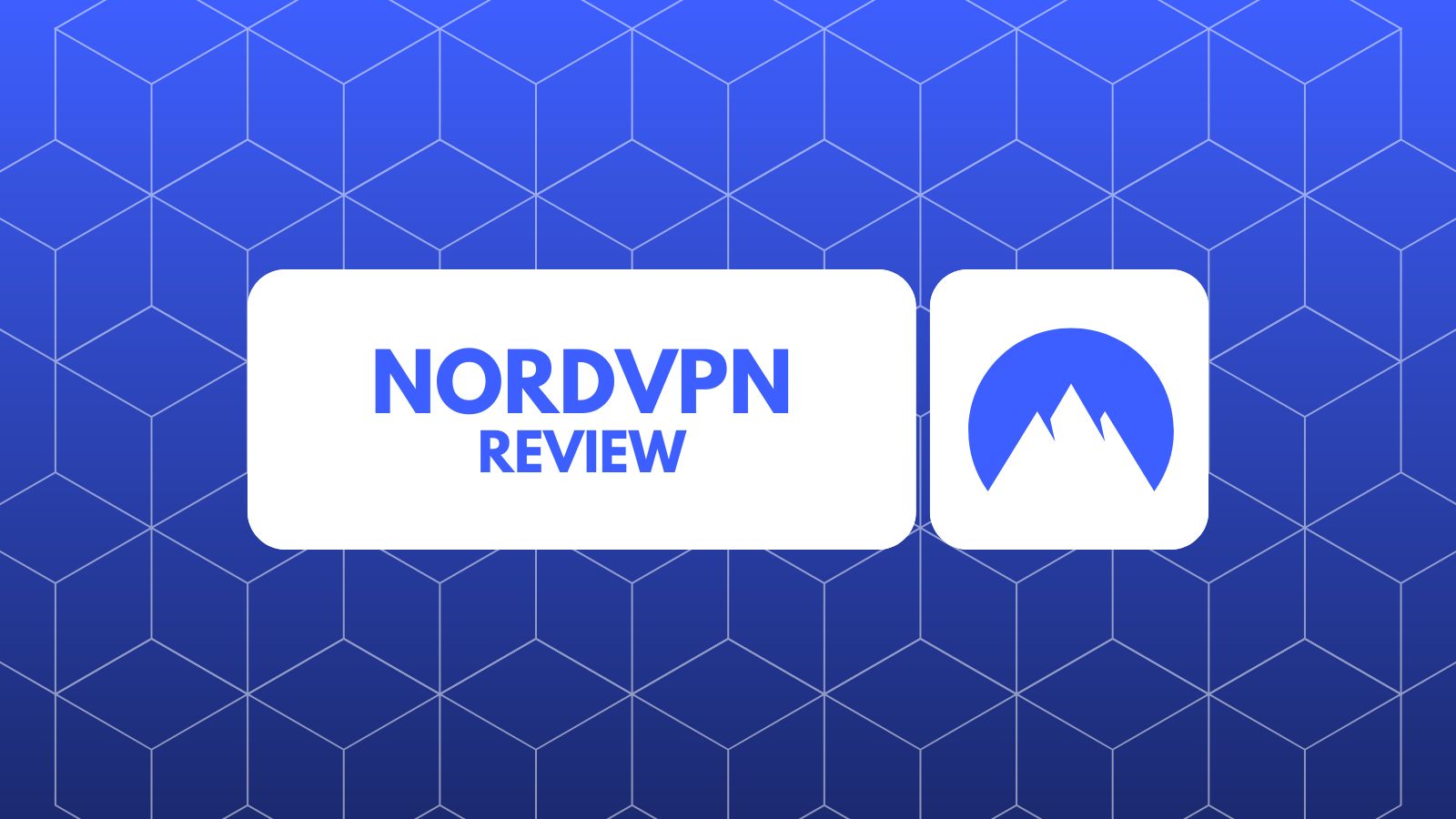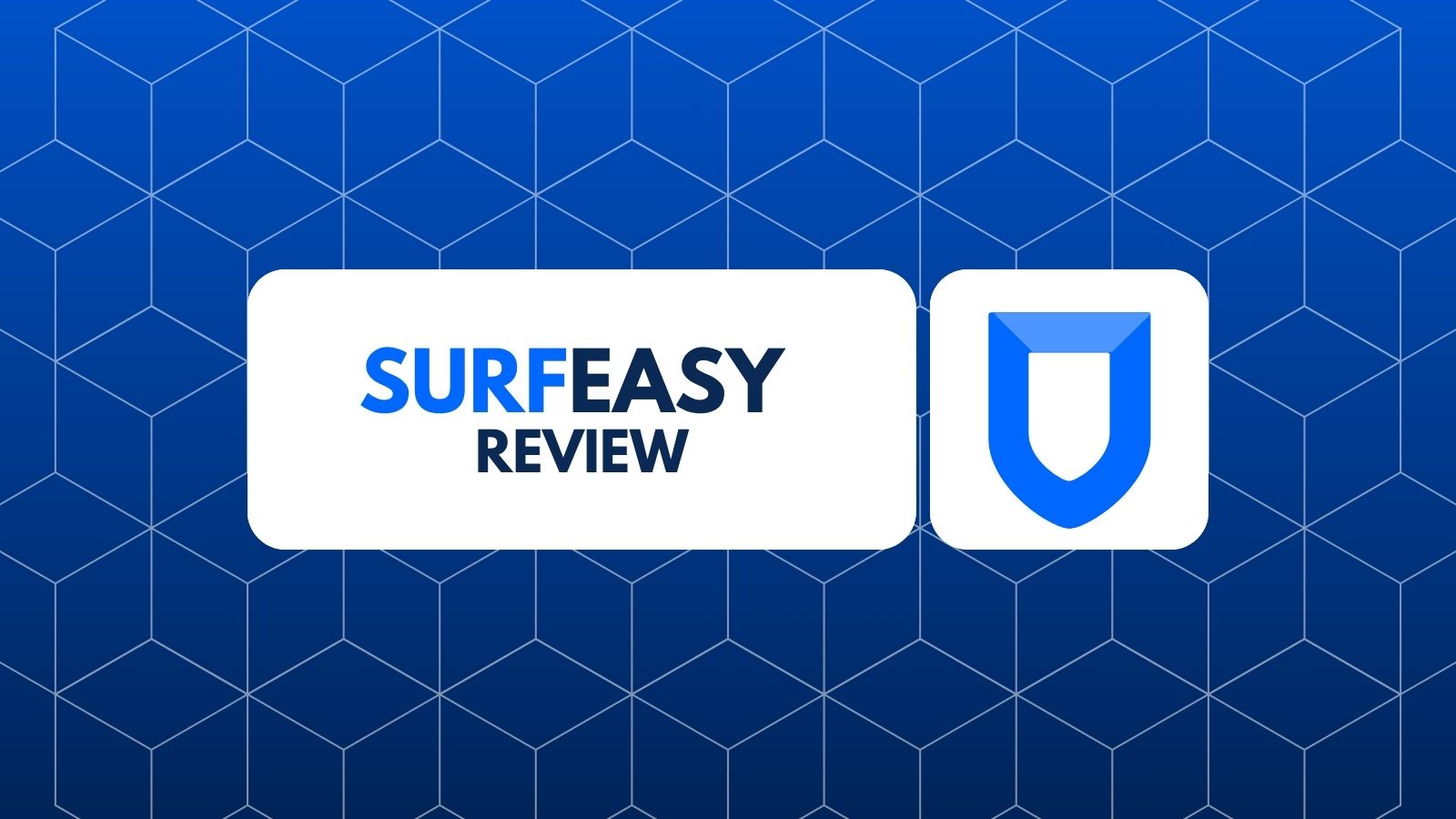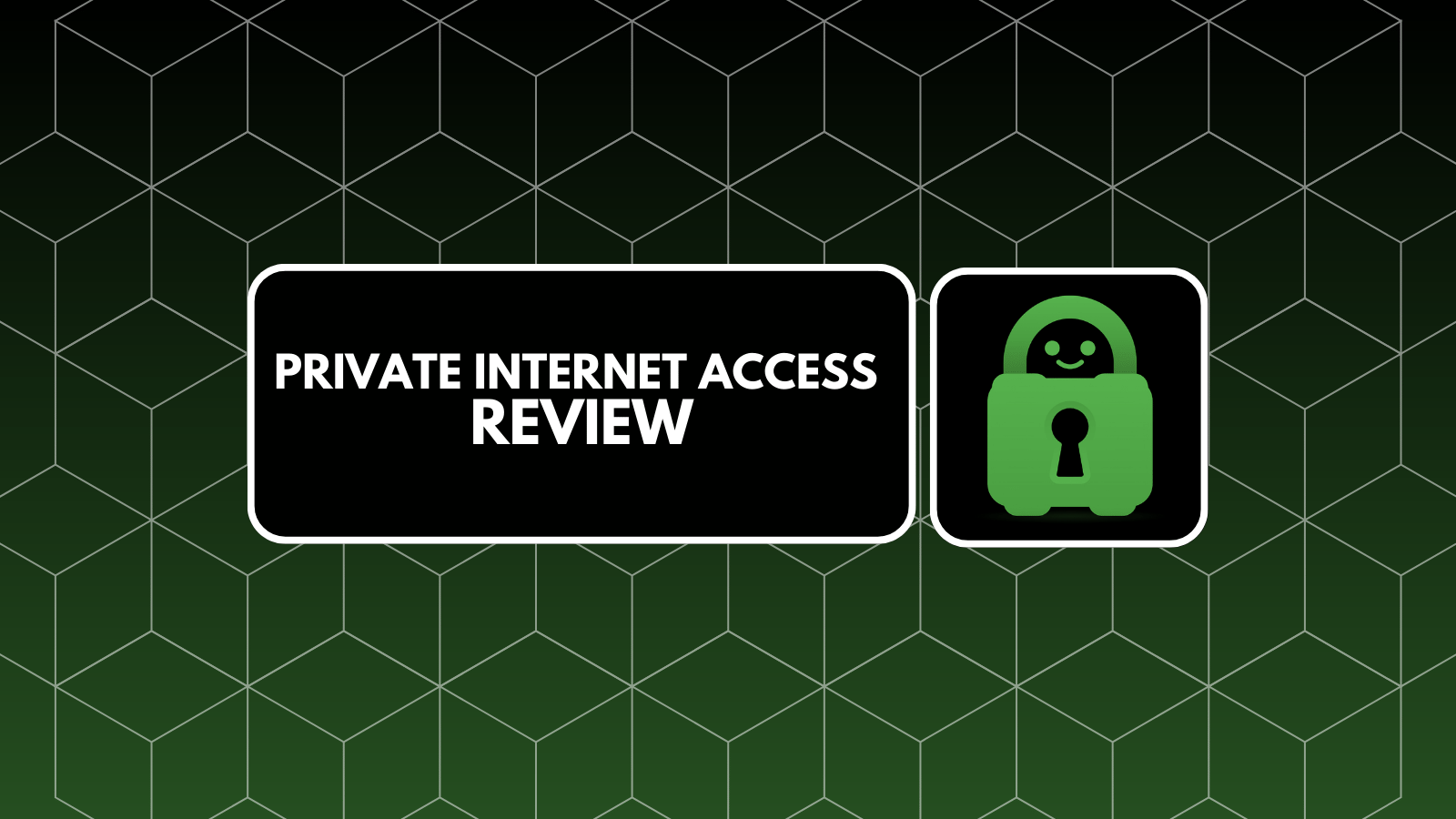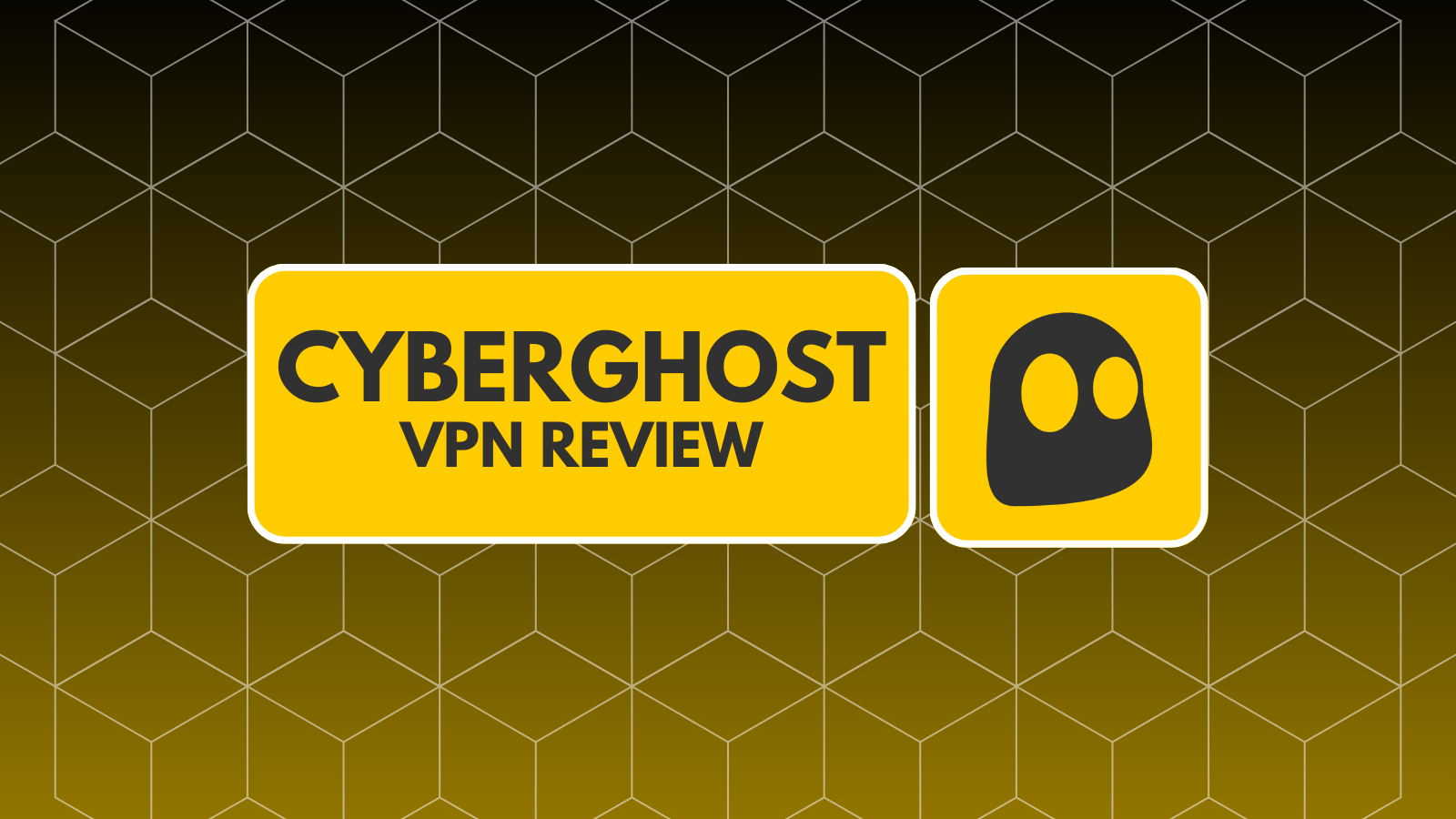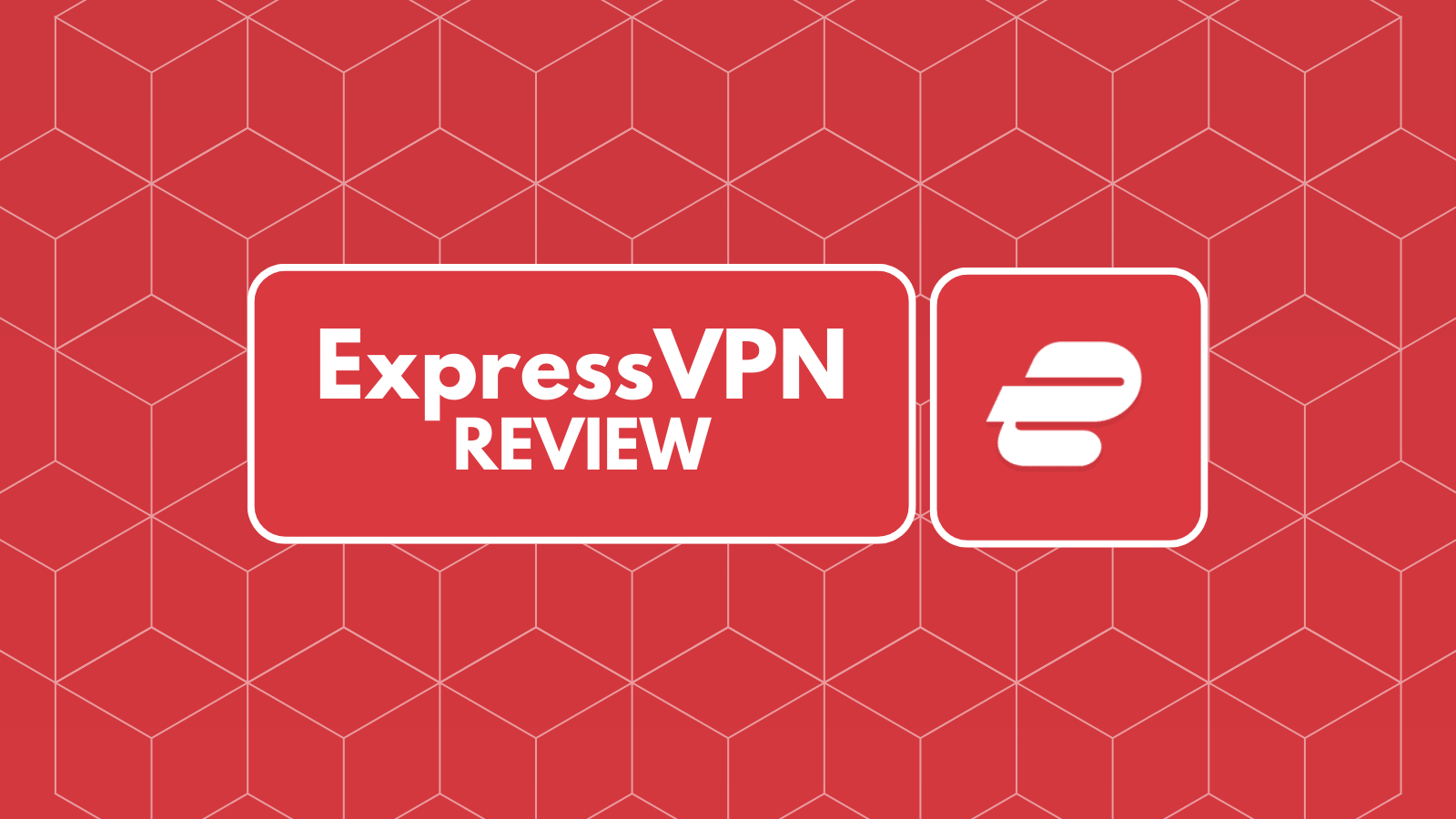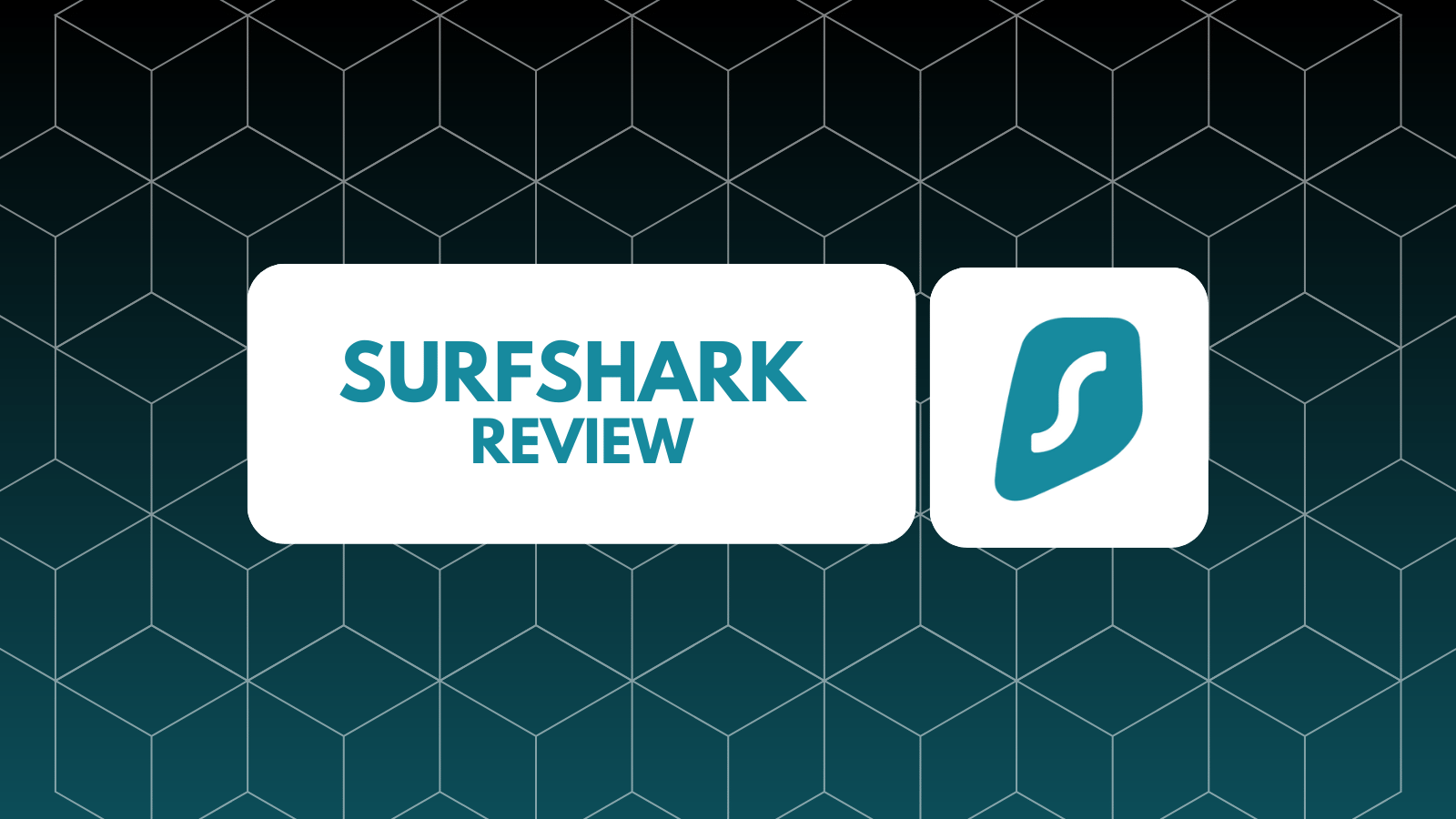How We Review VPNs – Here’s How VPNs Get TechNadu’s Seal of Approval!
Our experts have reviewed 53 VPN providers, which were put through extensive rounds of testing. To learn more about that process, here’s how we review VPNs, where we explain our criteria and our policy of being fully transparent.
Our approach to reviewing VPN services tries to be as straightforward as possible. VPN brands and cybersecurity companies never influence our team. Instead, everything you read on TechNadu is based on our team's opinion, hands-on experience, and rigorous testing.
With that said, maybe you wonder: - what makes TechNadu special? What makes us different from countless other VPN review websites? And most importantly, why should you trust us?
We'll make sure to answer all your questions without using complex legal terms or convoluted VPN terminology. So, here's how exactly TechNadu's team reviews VPN services.
TechNadu's Essential Policy - Being Fully Transparent!
First of all, you should know how we cover the basics. What follows is the explanation of TechNadu's relationship with our readers on one end and VPN providers on the other end.
Our Relationship with VPN Providers & Business Partners
If you take a close look at our Affiliate Disclosure, you will see that TechNadu has business relationships with a number of VPN providers (affiliate partnerships). However, that doesn’t mean that we recommend VPNs that don’t deserve your total trust.
You should know that VPN providers don’t influence our reviews. We have never and will never accept any form of compensation for favorable coverage.
Our entire process of reviewing VPN services centers on individual users and their right to online privacy. We fully understand that you need a VPN to ensure your total online anonymity, and we respect that. In fact, we're doing our best to provide advice on strengthening your digital privacy and finding ways to get more out of the Internet.
You can be 100% sure that our reviews are impartial. Just like we did in the past, we plan to stay honest and open in the future.
Our Relationship with Visitors & Readers
As noted just above, we assure you that our VPN reviews are impartial. As you can see from the screenshots posted across numerous VPN reviews on our website, we’ve installed and used those VPNs for an extended period of time.
Our editorial team has nothing to hide, and we’re dedicated to answering our readers’ queries and comments. Furthermore, every article published on TechNadu has a comments section, which allows you to express your opinion and ask questions. You'll receive a reply from one of our team members, most likely within 24 hours.
You should also note that the world of VPNs is a fast-evolving one. Therefore, we do our best to publish up-to-date information. We also try to update our reviews every once in a while, especially following significant new updates or events in the world of cyber-security.
However, we strongly recommend you test-drive a VPN before fully committing and seeing how well it performs based on your geographical location.
TechNadu’s 13-Step Process of Reviewing VPNs
Let’s look at our full process of testing and reviewing VPNs. We’ll guide you one step at a time, and you’ll see that everything said here is reflected in each of our VPN reviews.
1. First Step: Buying Our Own VPN Subscription
To remain impartial, we always pay for VPN subscriptions, which allows us to remain objective, experiencing VPNs just like any regular user/subscriber would.
Next, know that we maintain active subscriptions for every VPN present on the website. We update our reviews from time to time since VPNs tend to add new features and enhance their security-protecting systems.
In other words, maintaining subscriptions over time allows us to keep track of VPNs in the long term and see which ones provide excellent value for their price.
2. Background, Jurisdiction & Reputation
The first segment of our VPN reviews focuses on checking each VPN's background information, jurisdiction, and reputation. We research where each VPN is located, what privacy laws it needs to respect, and whether its home country is part of the 5/9/14 Eyes Alliance.
It’s also essential to see if VPNs have had any data leaks in the past or if some vulnerabilities have led to problematic consequences. Then, we check whether the VPNs have previously worked with law enforcement and if independent cyber-security companies have audited them.
Understanding who owns the VPN and if they operate other VPN services or review sites also provides essential context for evaluating potential conflicts of interest. This helps us understand how well the VPN protects user privacy.
We assign a score from 0 to 10 based on these factors. The higher the score, the better it is at protecting your privacy. Here’s the scoring system we use to calculate the overall score for this segment:
In the best-case scenario, you want to use a VPN with no past problems and a strong reputation for not collecting your data.
3. Supported Platforms & Devices
Today’s VPNs bring native applications for various platforms. That can include Windows, macOS, iOS/iPadOS, and Android – which is considered the basic coverage. VPNs can also support routers, Fire TV streamers, Android TV, and even specific smart TV models.
To ensure we know what we’re talking about, we install each VPN on several devices. Our team owns computers powered by Windows and macOS. We also own smartphones that run Android and iOS, tablets powered by iPadOS, and various media streaming devices.
As you can guess, top-rated VPNs have native software for desktop and mobile devices. They also offer native apps for media streamers, various types of routers, and more. VPNs with a low rating typically rely on manual configuration, which isn't recommended for first-time VPN users.
Beyond device compatibility, we also consider the number of simultaneous connections allowed, which is a crucial factor for users with multiple devices.
To better understand our evaluation process, we've developed a scoring system that assesses specific factors. These include native app availability on desktop and mobile, browser extension and router support, and overall device compatibility.
A higher score indicates broader device compatibility and a smoother user experience across different platforms.
4. Installation & Initial Configuration
Next, we continue by installing the VPN on our computer. This is where we rate VPNs based on how easy and fast it is to get started.
Ideally, you want quick access to native applications, usually found when you log in to your account on the VPN’s website (from where you can download them). We also check if VPNs set up everything before they launch, or perhaps you need to do some fine-tuning yourself.
To objectively assess these factors, we use the following rating system:
We also provide step-by-step guides for downloading and using each VPN to help our readers determine how easy a VPN is to install and use.
As you can see, our rating for this segment is mainly based on the ease of installation. VPNs that require you to jump through hoops and that come with bundled software are the least desirable ones, and we give them a lower score.
5. Prominent Features
When we review VPNs, we look for a solid foundation of features. To find the best VPN for privacy, we check for standard features like unlimited data, bandwidth, and server switches, as well as essential protection from DNS and IPv6 leaks.
To give you the full picture, we also check advanced options like kill switches, split tunneling, dedicated IPs, ad-blockers, and malware protection. For those seeking extra privacy or performance, we check for unique features such as double VPN, obfuscation, and specialized servers, among others.
Based on the criteria below, we give the highest rating to the VPN services that offer a complete package.
In other words, the highest-rated VPNs on our website offer a robust set of basic and advanced features. This means those VPNs have the power to safeguard and boost your online activities, protect your sensitive data, and prevent your identity from being exposed.
6. Server Count & Infrastructure
In this segment, we rate VPNs based on the size of their server networks. More precisely, we examine two things here. First, we check how many servers you'll get, and then we check in how many countries those servers are found.
That's because some VPNs can bring over 6,000 servers - found across 60 countries. Other VPNs might bring 3,000 servers - but can be found across 90+ countries. To help you visualize how we assess server networks, take a look at the table below.
Beyond these core metrics, we also check specific features and types of servers offered. We look for virtual VPN locations, city-specific servers, unlimited server switching, RAM-based servers with obfuscation, and other specialty options. These factors significantly enhance user experience and are key considerations in our evaluation.
To ensure the best possible performance, you'll want to have VPNs with the most servers. So, VPNs with a high rating on our website deliver just that - plenty of servers in plenty of countries.
7. UI/UX Design & Ease of Use
Since VPNs bring native applications for different platforms, we usually check how easy they are to use. A VPN app's user interface and user experience are hard to assess since they can be based on subjective feelings. However, we try and be as objective as possible in the following way:
We want to add that we install and try each VPN on different platforms. We have three individual segments in this specific section of our reviews, focusing on desktop devices, mobile devices, and Web browser extensions.
In the last couple of years, VPNs have come a long way in terms of their UI design. Many of them now resemble mobile apps that are very easy to use. In many cases, it takes two or three clicks to select a VPN server and connect to it.
If the VPN brings a simple enough interface that can be used even by complete beginners, we give it the highest score. The deeper you have to dig to find certain options, the lower the score.
8. Media Streaming, Torrenting & Gaming Support
VPNs are used for more than privacy protection. Many of them come with features focused on media streaming, torrenting, and gaming - which is precisely what we inspect and test while reviewing them.
In our reviews, you can see how successfully VPNs can unblock Netflix US, Hulu, BBC iPlayer, Disney Plus, and Prime Video. We also make sure to check how other platforms work, such as HBO Max, ESPN Plus, NBA League Pass, and more.
To further gauge a VPN's ability to bypass geo-restrictions, we test how VPNs work with different Netflix libraries worldwide. We also check whether the VPN offers dedicated streaming servers and other features designed to reduce buffering.
Next, we test a VPN's capabilities when downloading torrent files. Aside from checking their legal documentation, we download copyright-free files (Charlie Chaplin's movies, in most cases) to see how reliable and fast VPNs can transfer data via P2P servers.
Lastly, we check how well VPNs work for online gaming. In most cases, we talk to the VPNs' representatives to learn whether optimized gaming servers or any gaming-centric features are offered. Then, we test each VPN by going through a gaming session (playing an online game like Fortnite, for example).
Here's our scoring system to provide a clear overview of a VPN's performance in these areas:
9. Security & Privacy
In one of the earlier segments, we told you that we check for prominent features. That includes listing the most critical security features of each VPN. However, this segment of our VPN reviews is all about testing those features. With this said, we focus on three aspects.
- Supported Encryption Protocols: When choosing a VPN, you'll want to know what kinds of VPN protocols you'll be able to use. The most capable VPNs bring every currently popular protocol, including OpenVPN, WireGuard, IKEv2, and IPSec. So, we check which protocols you'll get and on what platforms. We also check what level of encryption is on offer.
- Logging Policy: You should never trust VPNs that highlight their no-logs policies on their websites. Instead, taking a deep dive into their privacy policy is the way to go. We check legal documents to see what kinds of files are being collected and what VPNs do with those files. We also check if VPNs offer RAM-based servers (to ensure data isn't persistently stored) and whether any independent audits have been performed in the past to confirm their 'no-logging' claims.
- DNS Leak Test: Finally, a data leak test is mandatory to check for any leaks. We use a DNS leak test to identify potential leaks or vulnerabilities. This service helps us identify anything that might expose your real IP address, DNS requests, or WebRTC data leaks, even when the VPN is supposedly active.
Our scoring system for this segment is based on the criteria below. VPNs that excel in security and privacy usually receive the highest scores.
10. Speed & Performance
To investigate what kind of performance you can expect from VPN services, we put every VPN through a series of speed tests (via Speedtest by Ookla). More precisely, there are three rounds of tests, as explained just below:
- First, we get our baseline stats. We check the speed of our Web connection - without using any VPN in the background (by rule, VPN software is shut down completely to avoid any potential interference). That means we first establish the baseline ('naked') speed of our Web connection.
- Next, we check the performance of nearby servers. We conduct speed tests by connecting to at least two nearby VPN servers and checking the speed of their Web connection upon each successful connection.
- Then, we connect to remote servers. In general, VPN services introduce more noticeable throttling when using highly remote VPN servers. That can be especially noticeable when using servers found in countries such as the United States, Canada, India, and Australia. Our team connects to VPN servers in all those countries, checking the speed of their Web connection upon each successful connection.
Finally, we compare the results of our baseline, nearby-, and remote-connection VPN tests. To measure this, we record download and upload speeds and then calculate the percentage speed reduction. The average slowdown across all tests serves as the foundation for our rating system, which you'll find below.
Top-ranked VPNs bring minimal (least noticeable) throttling and usually score high in this segment.
11. Customer Support
VPN applications are technically complex solutions, which means that something can go wrong from time to time. When that happens, you’ll be happy to have reliable and responsive customer support. As a side note, you can also check our VPN troubleshooting guide.
The best VPNs provide round-the-clock live chat. You visit the official website of your VPN, and you can talk to a real person about the problem you’re experiencing. However, other types of support are equally important.
In this segment, we award points based on the types of customer support the VPN offers. Like in other segments, we rate from 0 to 10 points.
Our best-rated VPNs offer all the features and benefits discussed above - they go the extra mile with exceptional customer support. You can typically expect 24/7 live agent assistance and email responses within a day.
12. Pricing & Value
After going through all of the previously described segments, we draw conclusions about how much value VPNs provide for their price. Our findings rely on how extensively VPNs cover both basic and advanced features, whether they offer a free version or free trial, and what kind of money-back guarantees they provide.
First, we decide whether the VPN is overpriced or reasonably priced. This will help us determine whether the VPN is worth the money. Then, we increase its rating based on the table below.
In addition, we highlight the best deals, lowest prices, and potential savings to help our readers maximize their investment. To enjoy long-term cost savings, we recommend considering top-rated VPNs with substantial discounts on annual or multi-year plans.
13. Drawing Our Final Rating & Conclusions
To wrap up our review, we provide a clear verdict on each VPN, complete with recommendations and a detailed comparison of its pros and cons.
We also determine the VPN's overall rating based on the scores of the previously assessed categories. In other words, this rating serves as an indicator of what to expect from the VPN's performance. We calculate the overall score by adding up the scores from each segment and getting their average.
Generally speaking, VPNs that come with ratings between 8.0 and 10.0 (such as NordVPN, ExpressVPN, Surfshark, Proton VPN, and CyberGhost, for example) should be at the top of your list. These are hugely capable VPN providers that can cater to the most demanding users' needs. To learn more, we highly recommend checking our guide to the best VPN services.
As always, use the comments section below if you have any questions for our team. Thank you for reading - and we hope you'll find our VPN reviews to be helpful!



